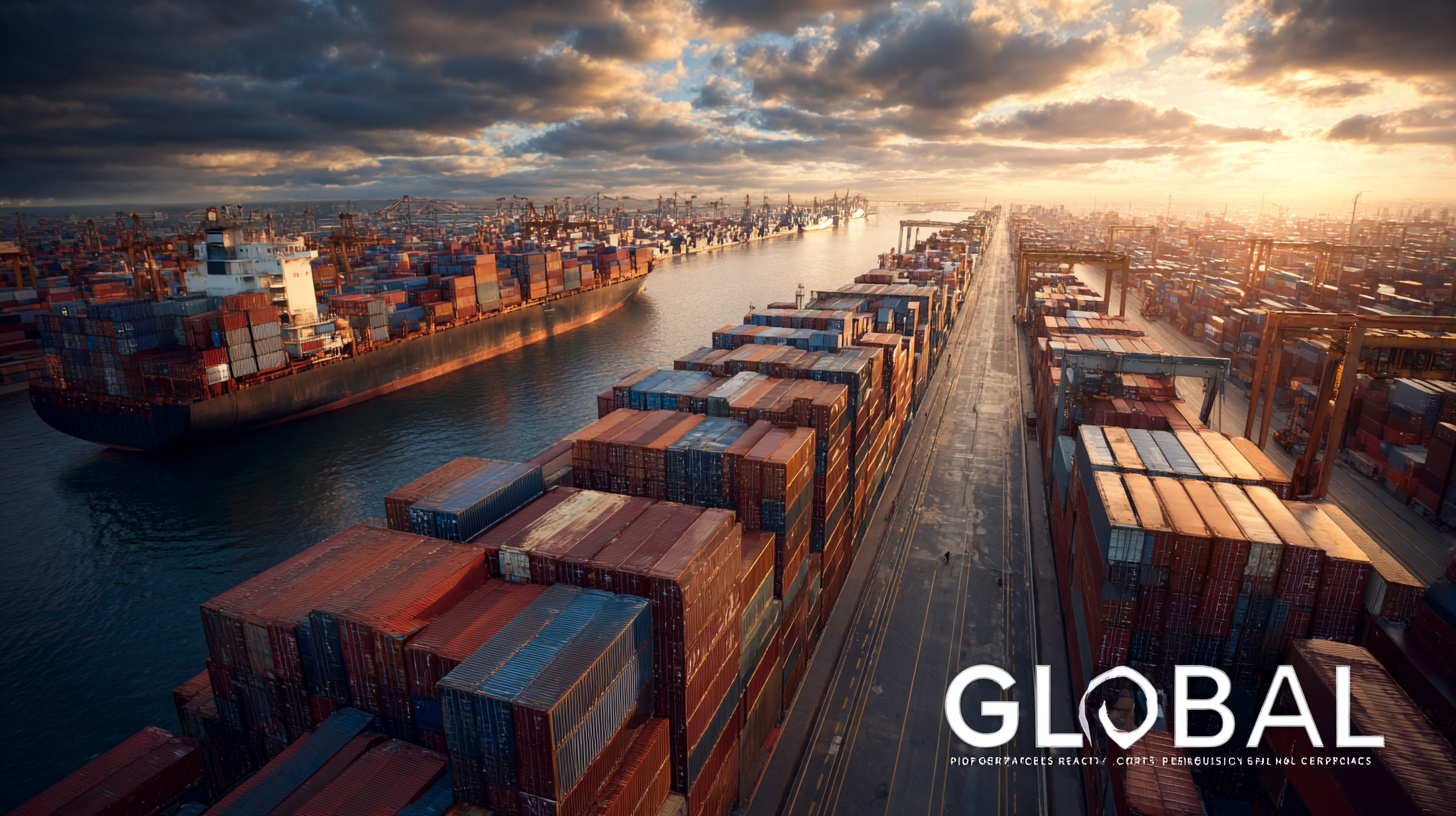
-
Home
-
Product Center
-
Application
-
Support
-
JT Cloud
-
About Us
-
Contact Us
Leave Your Message

In an era where global trade continues to expand, the demand for high-quality products, especially in industries like home decor and interior design, has surged, with the artificial sky segment witnessing remarkable growth. According to a recent market analysis report by Statista, the global market for artificial skies is projected to reach $2.4 billion by 2025, driven by innovations in design and increasing consumer preference for aesthetically pleasing environments. Unlocking the potential of import/export certifications for artificial sky products is crucial for manufacturers and distributors aiming to tap into this lucrative market. Sourced from top factories in China, these products are not only crafted with precision but also backed by a rigorous certification process that enhances their reliability on the global stage. Understanding the complexities of certification can empower businesses to build trust and ensure compliance, making a significant impact on their market presence and accessibility.

Understanding the landscape of import/export certifications is crucial for businesses dealing in artificial sky products. In recent years, the global market for artificial sky solutions has expanded significantly, projected to reach USD 4.5 billion by 2025, according to a report by Market Research Future. This growth underscores the importance of navigating the regulatory landscape effectively, as compliance with international standards not only ensures product quality but also facilitates smoother market entry.

Navigating the complex regulatory landscape of global trade requires a comprehensive understanding of import/export certifications, especially for products like artificial skies that are gaining popularity in diverse markets. According to a report by the World Trade Organization, the global market for artificial environments, including artificial sky products, is projected to reach $14 billion by 2025, making compliance with international standards crucial for manufacturers and exporters. Regulations often vary by region, necessitating that businesses stay updated on certification processes, such as ISO standards, CE marking in Europe, and FCC compliance in the United States, among others.

Compliance not only impacts market access but also enhances credibility and trust. The International Organization for Standardization (ISO) estimates that companies that adhere to recognized standards can see an increase in sales of up to 20%. Furthermore, understanding the certifications needed for different territories can lead to reduced operational risks and penalties. For example, the European Union has implemented stringent regulations regarding product safety and environmental impact, which can significantly affect the import/export dynamics for artificial sky products. By prioritizing compliance and certification, businesses can successfully unlock the potential of global trade and position themselves as leaders in this innovative sector.
When engaging in the import and export of artificial sky products, understanding essential certifications is crucial for compliance and market access. Reports from the International Trade Centre indicate that the global market for artificial light products is projected to reach $210 billion by 2025. Navigating the complex landscape of certifications can significantly impact a business's competitiveness. For example, products may require CE marking in Europe, indicating conformity with health, safety, and environmental protection standards. Similarly, obtaining ISO 9001 certification can enhance quality assurance, which is a strong selling point for international buyers.
Another vital certification is the FCC compliance for electronics used in artificial skies, particularly in the United States. Not only does this certification ensure that devices meet electromagnetic compatibility standards, but it also boosts consumer confidence in product safety. Data from the U.S. Department of Commerce suggests that companies with recognized certifications can see an increase in export sales by up to 20%. Thus, understanding and acquiring the correct certifications is not merely a regulatory hurdle but a strategic advantage in the global marketplace.
| Certification Name | Purpose | Required By | Validity Period | Cost |
|---|---|---|---|---|
| ISO 9001 | Quality Management System | Multiple countries | 3 years | $1,500 - $3,000 |
| CE Marking | Compliance with Health & Safety Standards | European Union | Varies | $2,000 - $5,000 |
| UL Certification | Safety Standards for Electrical Devices | United States | 1 year | $1,000 - $4,000 |
| RoHS Compliance | Restriction of Hazardous Substances | European Union | No expiry | $500 - $2,000 |
| FCC Certification | Compliance for Electronic Equipment in the US | United States | Varies | $2,000 - $10,000 |
In the ever-evolving landscape of global trade, understanding import/export certifications is crucial for businesses aiming to succeed in the international market. Recent trade agreements, such as the one enhancing access for U.S. pet food exports to China, exemplify how strategic partnerships can pave the way for lucrative opportunities. With growth projections showing the U.S.-China trade in pet products could reach billions, companies must ensure they meet all compliance requirements to capitalize on these markets.
India’s Foreign Trade Policy (FTP) plays a significant role in boosting exports by streamlining procedures and providing clarity on regulatory frameworks. According to recent government reports, businesses adhering to updated FSSAI regulations are witnessing a smoother import process, essential for maintaining competitiveness in sectors like food. For instance, the revamped guidelines for Halal meat exports have effectively opened new avenues for Indian exporters, demonstrating the importance of staying updated with regulations to optimize supply chains.
Furthermore, innovations in technology are reshaping trade compliance and border management. The integration of AI into import/export processes is expected to enhance efficiency and accuracy in documentation, significantly reducing delays. As countries like Vietnam adopt new import/export regimes and simplify customs laws, staying informed about these changes and utilizing technology will be vital for businesses aiming for successful international trade operations.
The artificial sky product industry is poised for remarkable growth as global trade continues to expand, driven by increasing demand for innovative solutions across various sectors. As urbanization escalates, cities are seeking ways to enhance their environments, and artificial sky products are emerging as pivotal in improving aesthetics and functionality.
From decorative ceiling panels to advanced lighting systems that simulate natural daylight, these products are not only transforming spaces but also creating unique opportunities for businesses looking to tap into international markets.
Trends indicate a growing emphasis on sustainability and energy efficiency, leading to advancements in materials and technologies used in artificial sky products. Manufacturers are responding by innovating designs that not only meet aesthetic demands but also adhere to environmental regulations. As international trade regulations evolve, businesses involved in importing and exporting these products must navigate a complex landscape of certifications and standards. Understanding these requirements will be essential for companies to capitalize on emerging opportunities while ensuring compliance and fostering a sustainable future in the global marketplace.